1. Green Day
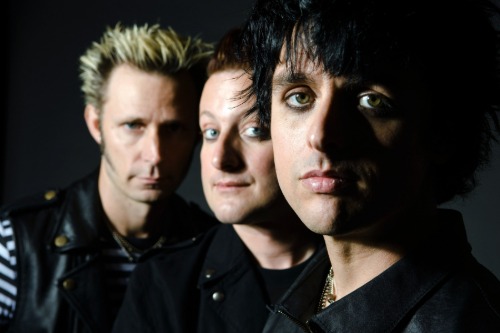
Green Day burst onto the scene in the early ’90s with a raw punk attitude and anti-authoritarian lyrics. Their 1994 album Dookie was punk’s rebellion distilled into catchy, radio-friendly anthems. Songs like “Basket Case” and “Welcome to Paradise” screamed outsider frustration, but their sound was polished enough to dominate MTV. By the early 2000s, Green Day was filling stadiums, headlining massive festivals, and essentially becoming the face of mainstream punk.
Even their politically charged American Idiot era was a paradox. The album critiqued the government, consumer culture, and media hysteria, yet it turned Green Day into a global brand. They were invited to perform at events like the Grammys and massive international arenas. This created a tension between their rebel persona and commercial ubiquity.
2. Rage Against the Machine

Rage Against the Machine literally built a career around anti-establishment messaging. Their music tackled corporate greed, police brutality, and systemic oppression, often with an intense, confrontational style. Their concerts were chaotic and politically charged, sometimes spilling over into activism. Even their imagery and videos screamed rebellion and radical politics.
Yet despite this revolutionary aura, Rage sold out stadiums around the world. Tours supporting albums like The Battle of Los Angeles packed tens of thousands of fans. Their record label, Epic, promoted them aggressively, turning underground anger into mainstream spectacle. They were anti-establishment in rhetoric, but absolutely a commercial powerhouse.
3. Pearl Jam
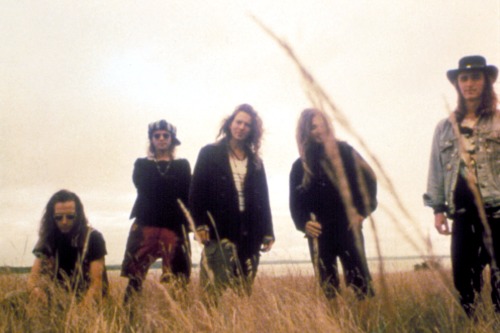
Pearl Jam famously fought Ticketmaster in the mid-’90s to keep ticket prices low, branding themselves as defenders of the average fan. Their lyrics often explore disillusionment, societal control, and personal autonomy. Songs like “Even Flow” and “Jeremy” have an undercurrent of questioning authority. Fans connected to their “anti-corporate” message on a deeply personal level.
Despite their principled stance, Pearl Jam plays stadiums with ease today. Their tours are global, selling out venues that hold tens of thousands of people. The irony of a band railing against commercialism while benefiting from it is not lost on critics. Yet Pearl Jam maintains credibility thanks to their consistency in activism and social commentary.
4. Foo Fighters
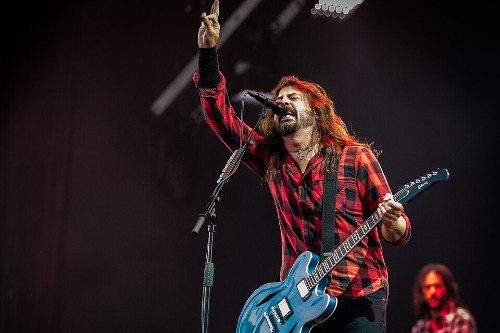
Foo Fighters emerged from the ashes of Nirvana with Dave Grohl at the helm, embodying a DIY, anti-mainstream ethos. They poked fun at corporate rock excess while maintaining a grunge spirit. Lyrics often critique the music industry’s formulaic nature, wrapped in accessible rock hooks. Early on, fans felt they were rooting for a band that resisted over-commercialization.
Now, they’re stadium rock royalty. Touring arenas worldwide, Foo Fighters can fill entire nights with sold-out shows. Their music is ubiquitous in commercials and films, a far cry from their anti-establishment roots. The juxtaposition of their rebellious aura and commercial success has always been part of their story.
5. The Killers
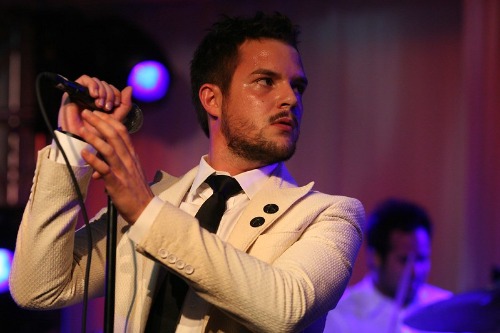
The Killers came onto the 2000s indie rock scene with a post-punk aesthetic and sharp critique of modern society. Songs like “Read My Mind” and “When You Were Young” explore disillusionment, alienation, and the struggle against societal norms. They cultivated an image that felt intellectual and rebellious, appealing to those who saw mainstream music as soulless. Their early interviews emphasized maintaining artistic integrity over chart success.
Yet, the Las Vegas band became synonymous with arena rock. Their tours routinely sell out stadiums, and they enjoy extensive radio play. The glamorous production of their shows contrasts with their supposed anti-establishment sensibility. Even as icons of mainstream success, they’ve held onto just enough indie cred to keep the mystique alive.
6. Linkin Park

Linkin Park captured millennial angst like few bands did in the early 2000s. Their nu-metal style combined screaming and rap with introspective lyrics about alienation, anger, and distrust of authority. Hybrid Theory and Meteora resonated with fans who felt marginalized or overlooked. The band projected an image of outsider rebellion that fans could rally behind.
Despite that, Linkin Park became one of the best-selling rock acts of their era. Stadiums across the globe were routinely packed with tens of thousands of fans. Their commercial success was immense, with brand partnerships and high-profile festival slots. The tension between their anti-establishment vibe and mainstream dominance was unmistakable.
7. My Chemical Romance
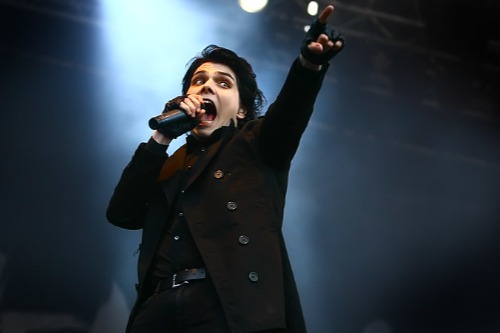
My Chemical Romance thrived on theatricality and anti-conformist messaging. Their Three Cheers for Sweet Revenge era spoke to teenage rebellion, disaffection, and a disdain for societal norms. The band cultivated a dark, emo persona that made fans feel seen and defiant. They often positioned themselves as outsiders fighting against a judgmental world.
By the mid-2000s, they were selling out arenas internationally. The spectacle of their performances was highly polished and commercially viable. Merchandise, licensing deals, and MTV rotations made them hard to separate from the mainstream. Their anti-establishment image existed alongside undeniable commercial success.
8. Fall Out Boy
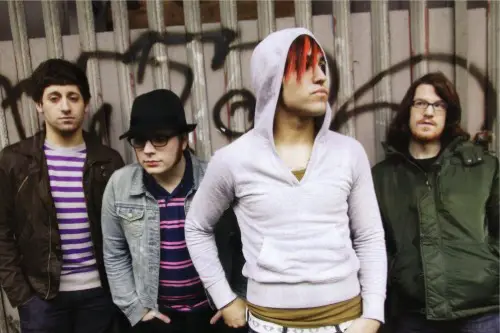
Fall Out Boy emerged from Chicago’s punk scene with a sarcastic, self-aware anti-establishment stance. Their early work criticized high school hierarchies, media tropes, and societal expectations. Lyrics often explore feelings of being an outsider in a formulaic world. Fans loved the mix of irony, rebellion, and catchy hooks.
They went on to sell out stadiums globally, becoming one of pop-punk’s biggest commercial acts. Albums like From Under the Cork Tree and Save Rock and Roll became multi-platinum successes. The band’s anti-establishment messaging contrasted sharply with their glossy, mass-appeal production. They embraced irony while being a product of the system they critiqued.
9. Red Hot Chili Peppers
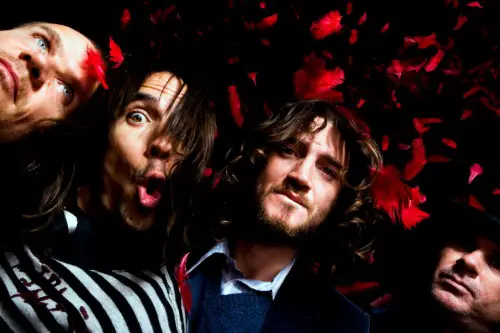
Red Hot Chili Peppers built their reputation as funk-punk rebels in Los Angeles. Their lyrics and energy embodied anti-establishment ethos, celebrating freedom, individuality, and counterculture. Songs like “Give It Away” and “Californication” explored excess, society’s flaws, and nonconformity. The band’s early underground shows cemented their outsider image.
Now, they fill stadiums without effort. From Coachella headlining slots to global tours, the Chili Peppers are mainstream icons. Their music is played everywhere from commercials to film soundtracks. The band maintains a rebellious reputation while enjoying undeniable commercial success.
10. Muse
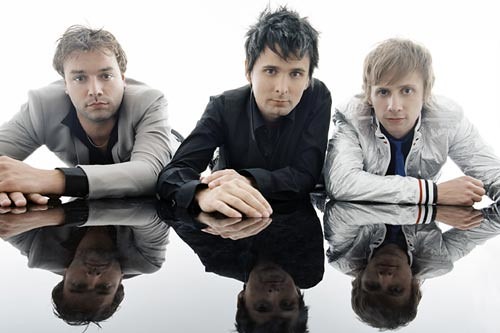
Muse is known for grandiose, politically charged rock anthems about authoritarianism, surveillance, and dystopian futures. Their music and imagery often critique power structures and corporate control. Early albums positioned the band as cerebral and anti-establishment, attracting fans looking for defiance in art. Their operatic approach suggested resistance to conventional rock tropes.
However, Muse’s live shows are blockbuster productions. Stadiums, pyrotechnics, and elaborate visual effects dominate their performances. Despite critiquing societal control, their reach and revenue are massive. Muse embodies the paradox of revolutionary ideas delivered through a mainstream spectacle.
11. Paramore
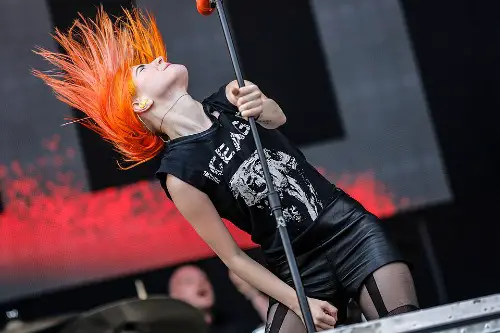
Paramore started in the mid-2000s with emo-pop rebellion at their core. Lyrics often tackle authority, social expectation, and self-liberation. Frontwoman Hayley Williams brought raw honesty, making the band relatable to teens feeling constrained by the world around them. Their DIY attitude and punk roots built early credibility in alternative circles.
Now, Paramore plays arenas around the world. Their polished sound and major-label backing ensure mass appeal. The gap between their anti-establishment messaging and commercial reality is obvious but embraced. Fans still resonate with the authenticity of their lyrics, even amidst big-stage success.
12. Imagine Dragons
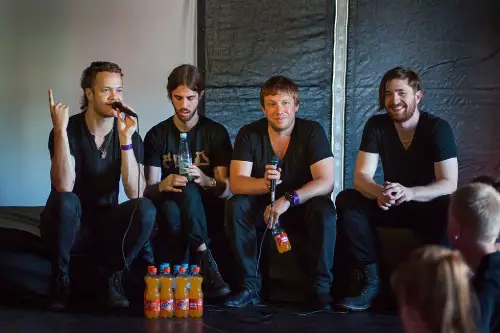
Imagine Dragons carved a niche with anthemic, stadium-ready rock paired with messages of personal struggle and questioning authority. Songs like “Demons” and “Believer” address themes of societal pressure and inner rebellion. The band cultivated an identity of overcoming systemic and personal limitations. Their branding emphasized individuality and fighting back against norms.
Yet, they are undeniably commercial juggernauts. Stadiums fill with tens of thousands of fans, and their songs dominate streaming playlists and radio rotations. Despite their themes of rebellion, they are part of the pop-rock establishment. The contrast between message and scale highlights the strange coexistence of anti-establishment ideals and mass-market success.
This post 12 Bands That Claimed to Be “Anti-Establishment” While Selling Out Stadiums was first published on American Charm.


